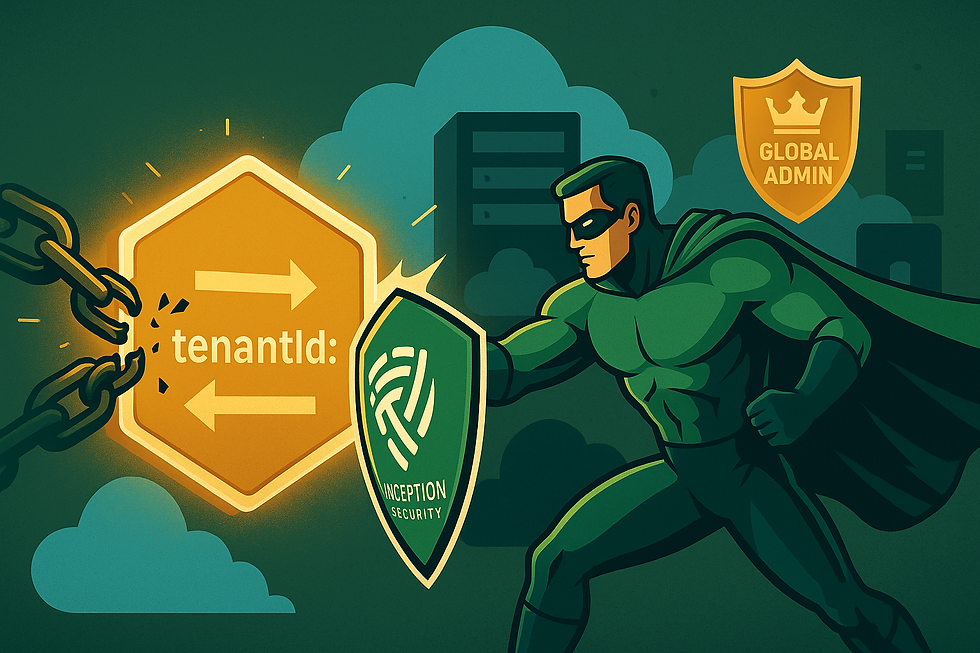What is Incident Response?
- Inception Security

- Mar 17, 2022
- 3 min read
Updated: Apr 22, 2022
Incident response is a method for dealing with various forms of security events, cyber threats, and data breaches in an organized manner. The goal of the incident response approach is to identify, contain, eradicate, and reduce the cost of a cyberattack or live event. To be prepared for a future attack, a well-built incident response (IR) plan will be essential in limiting the potential business impacts of an incident.
It is critical to address security breaches quickly and efficiently because many companies have suffered operational disruption, reputational damage, and financial losses because they did not have an incident response plan. Companies should have a cybersecurity incident response plan to minimize the risks. Some of the benefits of having an incident response plan are:
Getting back to normal business activities rapidly.
Keeping financial and reputational damages to a minimum.
Identifying and addressing cyber threats in a thorough and timely manner.
Common types of incidents:
Phishing attack
Denial of service attacks
Ransomware attack
Malware attacks
SQL injections
Incident response team:
A group of IT professionals who are responsible for preparing and reacting to any form of organizational disaster.
Responsibilities of IR team:
Putting together a proactive incident response strategy.
Understanding of vulnerabilities in the environment.
Understanding of security best practices.
Helping with all incident management procedures
Types of emergencies: Emergency types are categorized into two steps
Public incidents:
These incidents affect the whole community and occur due to natural disasters, terrorist attacks, and widespread epidemics.
Organizational incidents:
These incidents don’t affect the whole community but are limited to organizations only and occur smaller. It might involve data breaches, cyber-attacks, and threats to physical locations.
Incident response team functions:
The core function of an incident response team consists of the following:
Leadership: Ensures the team stays focused on reducing damage, recovering swiftly, and functioning efficiently by coordinating the overall plan and objectives of response actions.
Investigation: To identify the root cause of an incident, it is necessary to coordinate and collect as much information as you can. Make sure to gather the information that will assist in determining the issue and preventing future issues.
Communications: Internal and external Communication is most important because it is necessary for incident response. Communication is essential within the organization's teams and departments or with external stakeholders.
Documentation: Maintain a proper record of all the incidents response events and activities.
Legal representation: Must ensure that the incident response steps and activities are taken to protect the organization must be under the law and regulations.
Attributes of incident response team: The incident response team is a mixture of the following team members. It is the responsibility of the organization to choose members wisely.
Technical team: Members that must possess technical expertise. This team is the core of the incident response team.
Executive sponsor: The senior executive should be part of a team that analyzes the information security and risk management tasks.
Incident responders: Responsibilities include identifying, containing, and eradicating the threats from the environment. In addition to that, they can get into threat actor attribution. They also maintain track of incident response timeframes.
Communications coordinators: Responsible for internal and external communication within the organization, departments, and with stakeholders.
Forensic analyst: The person who is an expert in identifying the evidence of threat actor activity by analyzing the system images of the impacted hosts. They can be from the organization or outside the organization.
External consultant: A specialist in incident response, information security, or technical systems who can provide case advice.
Legal representatives: If action is necessary then this person is hired to represent the company.
We can help!
Are you looking for ongoing advisory services to assist in identifying vulnerabilities and security policies that should be in place and help improve your security posture? The team at Inception Security™ has been leveraged to enhance the security posture of fortune 100 companies, small and medium-sized businesses. Our team has a depth of knowledge in the cybersecurity industry and will be able to provide value to your business right away.
Contact Inception Security if your company is looking for advisory services.









Comments